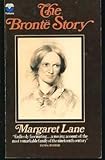
Reading Charlotte Bronte's Villette, I am reminded just how important it can be to have friends. I know, to anyone who has read Bronte, how trite that must sound; was there ever a woman more solitary than Charlotte by the time she wrote her last novel? mother long dead, brother, sisters all dead, romantic attachments dead, all but the last (if so her brief marriage can even be described,) with only her irascible, eccentric old father, dining alone, just across the hall in that horrid cold stone house. Villette is the story of a profound loneliness. But even poor Charlotte had friends. A life-long friend from childhood, and not her only such, kept her letters, or we would know so much less than we do. And Miss Bronte was the author of the famous Jane Eyre, and was well known to be, by the time her last novel was written. Must not forget, she was famous. She'd conquered London, after a fashion; Thackeray, George Eliot, all the great lions knew the little miss from the moors. But where Charlotte Bronte was luckiest, literally, was in having made a friend of Mrs. Elizabeth Gaskell.
Gaskell was, in many ways, exactly the woman Bronte was not; happily married, the mother of a brood, like Bronte, a novelist of great talent, but also a novelist of great social relevance -- something Bronte envied but knew herself not to be. They met through a mutual friend, only five years before Bronte's death at 39. Gaskell was curious, warm hearted, companionable. Bronte was uncharacteristically forthcoming. They were genuine friends from that moment. Gaskell even went to stay at the forbidding Haworth, twice or more.
And Charlotte Bronte's father, amazingly, asked Mrs. Gaskell to write his daughter's biography. It was a request that proved to be troublesome to all parties, but very fortuitous for readers. Mrs. Gaskell wrote a great book.
But there are other friends -- other friends of mine, met in books --that I meant in the title of this brief entry. Margaret Lane, the Dowager Countess of Huntingdon (no less) was a 20th Century novelist, traveler and, most significantly, a great biographer. Her two books on Beatrix Potter, The Tale of Beatrix Potter: a Biography(1946,) and The Magic Years of Beatrix Potter (1978,) are perfect little books. I love those books. Her Samuel Johnson and His World (1975,) is among the best modern books on Johnson that I ever read. And I have now The Bronte Story, by Margaret Lane, with charming and accomplished illustrations by Joan Hassall, from 1953, my copy a third reprint from 1961. What this book does that is proving such a boon to me, now reading Charlotte Bronte somewhat reluctantly again, is take Mrs. Gaskell's great biography, and interlace modern scholarship into it, in Margaret Lane's equally accomplished and accessible style, while relying on Mrs. Gaskell's original to tell what she told better than any since. It is a surprisingly humble, even reverent, and laudable undertaking, that honors both 19th Century authors, and by so doing, makes Lane's book that most unusual of literary associations, quite literally, a friend to the friend of the author. Lane's biography is as much the story of Mrs. Gaskell's book as it is a version of Mrs. Gaskell's book. It is a wonderful thing to read. It is the perfect help for me reading Bronte.

How many such friends of friends are likely to be found in literature? The inclination of modern biography, perhaps of all biography, no matter how famous any previous biography may have been or might still be, is to acknowledge quickly, seldom uncritically, and then dismiss. Margaret Lane can be critical of Mrs. Gaskell, but she is never dismissive. I can think of few other examples in all the many years of my reading, and none better or more deferentially accomplished.
(So, just to close with a familiar lament, why isn't Margaret Lane in print?! For once I may have an answer. Imagine being a contemporary biographer of Beatrix Potter and doing for Miss Lane's Miss Potter what Miss Lane did for Mrs. Gaskell's Miss Bronte. Hard to imagine, ain't it? Moreover, Lane's style is from another era of biography: gentle, charming, concise, enthusiastic, and never meant to be any of the things most highly prized by contemporary scholars and publishers: bloated, verbose, censorious, superior, unintelligible and or mean. No. It is no wonder at all dear Margaret Lane couldn't even get a reissue when the makers of the movie decided, presumable because Renée Zellweger looks rather like Peter Rabbit's mother, but is a "serious," Oscar winning actress indeed, to associate their production with a newer, bigger, darker and considerably less accomplished if more important looking book. I wondered, watching that movie, if anyone other than the designers of the sets and costumes actually read a word of even Jemima Puddleduck, let alone Margaret Lane.)

I just finished my latest rereading of Margaret Lane's " The Bronte Story"
ReplyDeleteMarvelous
I absolutely agree about Ms. Lane's style being from another era of biography. A BETTER one. My husband was just reviewing a 800 page biography more suitable for a door stop than a biography. He longed for the days of Cecil Woodham-Smith's biography of Florence Nightingale and such ....short, concise and distilled.
Today if it's not the size of compact car, it's not "serious" ... Lord
Indeed.
Delete